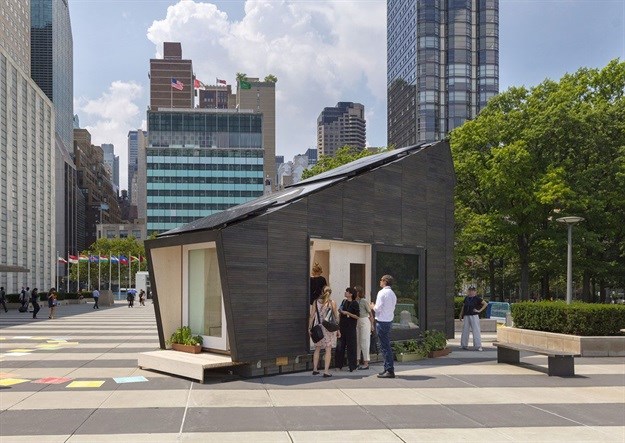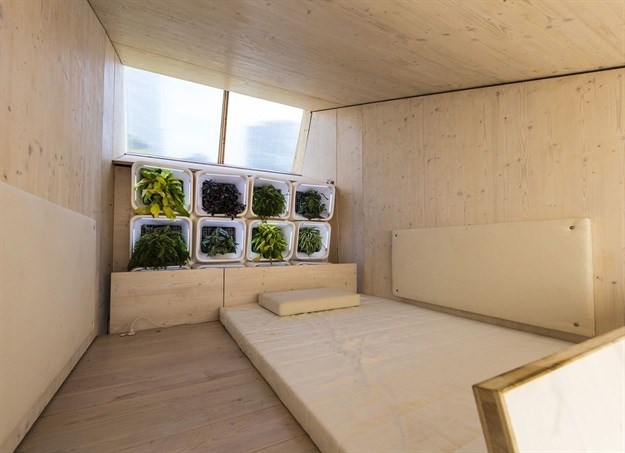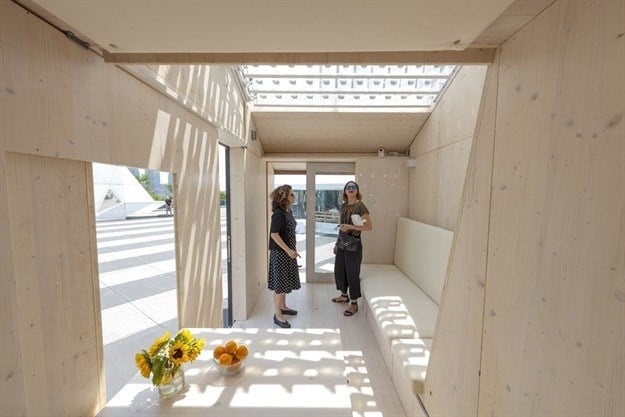
The new Ecological Living Module has been unveiled for the first time during the United Nations High-level Political Forum on Sustainable Development.
The 22m2 eco-module is constructed primarily from locally sourced, bio-based renewable materials so that the module is efficient, multi-functional and engineered to operate independently.
Developed with the Yale Center for Ecosystems in Architecture, UN Environment and UN Habitat worked with new Heaven-based Gray Organschi Architecture to design, fabricate and install the Ecological Living Module. The unit is efficient and multi-functional, accommodating up to four people, serving both domestic and commercial purposes in various urban and cultural contexts.

"We clearly need more housing, but the key thing is that we also need smarter housing," said Erik Solheim, head of the UN Environment. "The housing sector uses 40% of the planet’s total resources and represents more than a third of global greenhouse gas emissions. So making them more efficient will benefit everyone, and it’ll mean lower bills too. Innovations like the Ecological Living Module are what we need more of."
"Adequate housing is at the heart of sustainable urbanisation," said UN Habitat executive director Maimunah Mohd Sharif. "The use of proper building materials, better planning and improved construction techniques can make energy use in buildings more efficient. If adopted widely, this practice can create jobs and prosperity with lower greenhouse gas emissions."

The new eco-living module is engineered to operate independently, the module’s built-in systems include solar energy generation using less than 1% of toxic semiconductor materials, on-site water collection, micro agricultural infrastructure, natural daylighting, plant-based air purification, passive cross-ventilation, and a range of flexible, adaptable components for living and working.
"Around one billion people worldwide currently live in informal settlements, while millions more live in buildings that are not environmentally friendly. Rapid urbanisation and economic growth challenge communities to sustainably expand capacity, heightening the need for innovation in building systems and infrastructure," added UN Environment.

"Architecture must address the global housing challenge by integrating critically needed scientific and technical advances in energy, water, and material systems while remaining sensitive to the cultural and aesthetic aspirations of different regions," said Deborah Berke, dean of the Yale School of Architecture.
Article originally published on World Architecture Community.

Since 2006, World Architecture Community provides a unique environment for architects, architecture students and academics around the globe to meet, share and compete.
Go to: https://worldarchitecture.org/